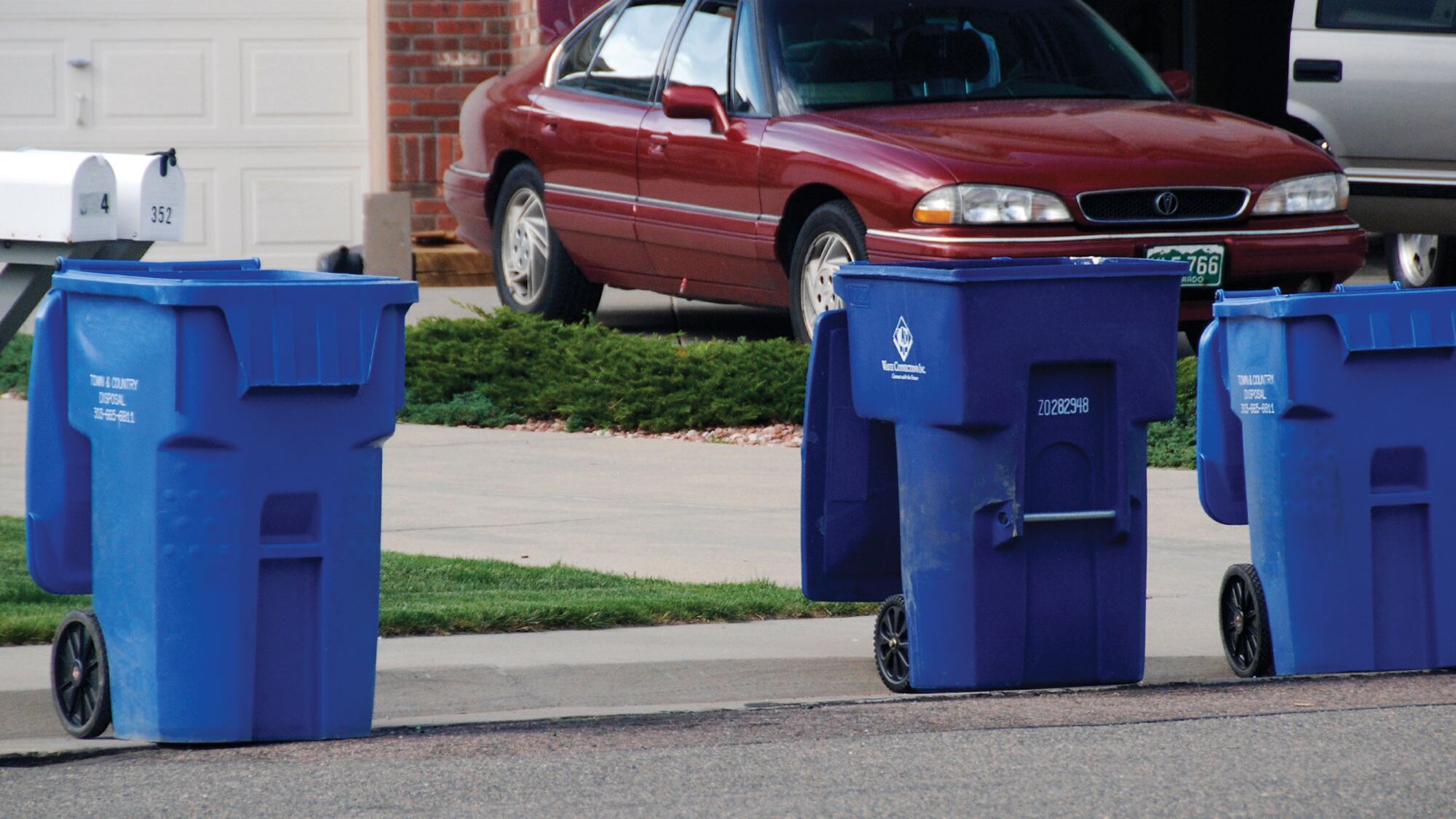Starting next week, most Portland households will pay 75 cents more a month for garbage collection. About 20 cents of that increase happened because Portlanders voted last November to tax big companies for climate change projects.
But it's not clear voters understood they were agreeing to tax their trash and recycling pickup. That's partly because proponents of the Portland Clean Energy Fund surcharge said the tax on big corporations would not be passed on to customers. (Companies with more than $1 billion in sales nationally and $500,000 within the city are subject to the 1 percent increase in their business license tax.)
"I was surprised, because I really thought that Portland voters were told explicitly that this is something that big corporations were going to be paying, not the average voters," says Stuart Weitz, 54, a Northwest Portland homeowner who was alerted to the increase by a mailer sent to city residences earlier this month.
(He voted against the measure in November.)
He's not alone in being surprised. As city officials and businesses have learned this spring, the scope of the Clean Energy Fund has expanded.
A 2017 analysis by the city's Revenue Division of a draft of Measure 26-201 predicted the tax would raise between $35 million and $51 million a year. During the campaign, proponents argued the clean energy tax would raise roughly $40 million a year.
But in February, after voters passed the measure, the Revenue Division updated its estimate of tax receipts—to between $54 million and $71 million a year.
How did this happen? "One primary difference between the 2017 analysis and the 2019 analysis was the definition of 'retail sale,'" says Thomas Lannom, director of the Revenue Division.
The draft analyzed in 2017 defined it as "the sale of products, goods or services to the general public by a Large Retailer."
But the measure passed by voters was far broader. It "means the sale to a consumer for use or consumption, and not for resale," the measure states. "Retail sale includes but is not limited to the sale of services, including but not limited to retail banking services."
It's not clear whether the broader definition roped in garbage companies or they were included from the start. (Lannom says he doesn't know.)
But it does show the tax is being passed along to Portland residents. During the campaign last year, proponents argued the surcharge would be absorbed by big corporations and there would not be a direct effect on consumers. Opponents said the tax would function much like a sales tax.
Garbage pickup, while unique in being highly regulated by the city, is an example of the way voters will, in fact, be directly affected.
Just three of 11 trash haulers have revenues large enough to be subject to the tax increase. But the city spreads the costs of garbage pickup to all customers. And on May 29, the City Council voted to do so.
Garbage haulers have asked the Revenue Division that they be considered utilities, which are exempt from the surcharge. But haulers are not considered utilities in city code, says Lannom.
This is at least the second way the tax will directly affect city taxpayers.
As WW reported earlier this month ("Clean Break," June 5, 2019), the draft rules also make clear that construction companies will be taxed, which in turn could raise the cost of publicly financed projects, including schools and affordable housing.
The same groups that campaigned for a $40 million-a-year measure are now lobbying to maintain the broader definition. Advocates defend the increased scope of the tax.
"We have always acknowledged that the Revenue Division alone could make the full determination of who was subject to the surcharge, and the measure's definition of 'retail sales' explicitly includes the sale of services," says Khanh Pham, organizing director at OPAL Environmental Justice Oregon and a spokeswoman for the Portland Clean Energy Fund community coalition.
"Furthermore, we built into the measure a process for the nine-person grant committee of Portland community members to suggest changes to City Council if they deem it absolutely necessary."
The advocates also say the benefits of the measure outweigh the increased garbage fees.
"Garbage haulers are regulated by the city, a very different process than retail goods which will not increase in price," says Jenny Lee, advocacy director at APANO and a spokeswoman for the coalition. "This tiny garbage rate increase will be only pennies a month on average per household. Meanwhile, Portlanders and communities will see many financial benefits from the fund's living-wage jobs, job training and energy savings, along with healthier, more vibrant communities."
Unless the coalition of advocates supports a change, that puts city commissioners in a tight political spot.
Portland voters passed the measure overwhelmingly: 65 to 35 percent. Since then, Mayor Ted Wheeler and Commissioner JoAnn Hardesty have deferred to the coalition's views.
"PCEF is a community-led initiative, and any amendments to the rules should have support from the PCEF community coalition," says Wheeler's spokeswoman Eileen Park.
Hardesty agrees. "This measure was passed by the community with provisions in place that allow for alterations if needed," she says. "I'm committed to following the community's lead in reviewing and addressing the impacts of the surcharge and making changes if and when it's necessary."
(Commissioner Chloe Eudaly's chief of staff Marshall Runkel declined to comment.)
Commissioner Amanda Fritz said last month she supported a surcharge on her garbage bill to address climate change.
"I was really pleased to hear that I'm going to be paying 20 cents more per month," said Fritz.

